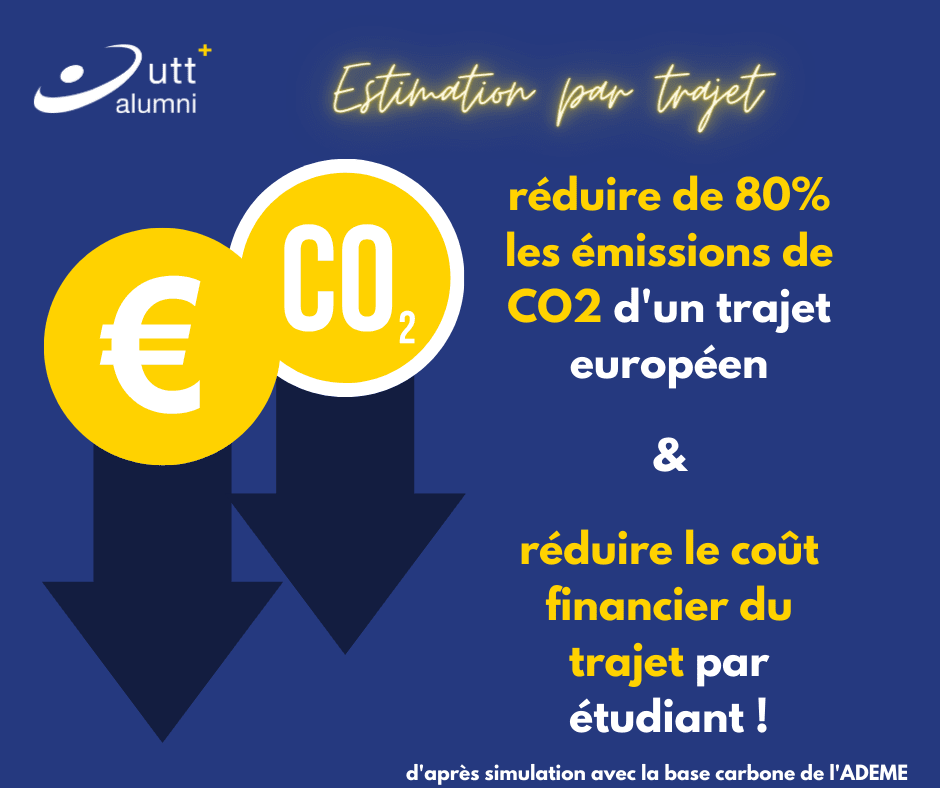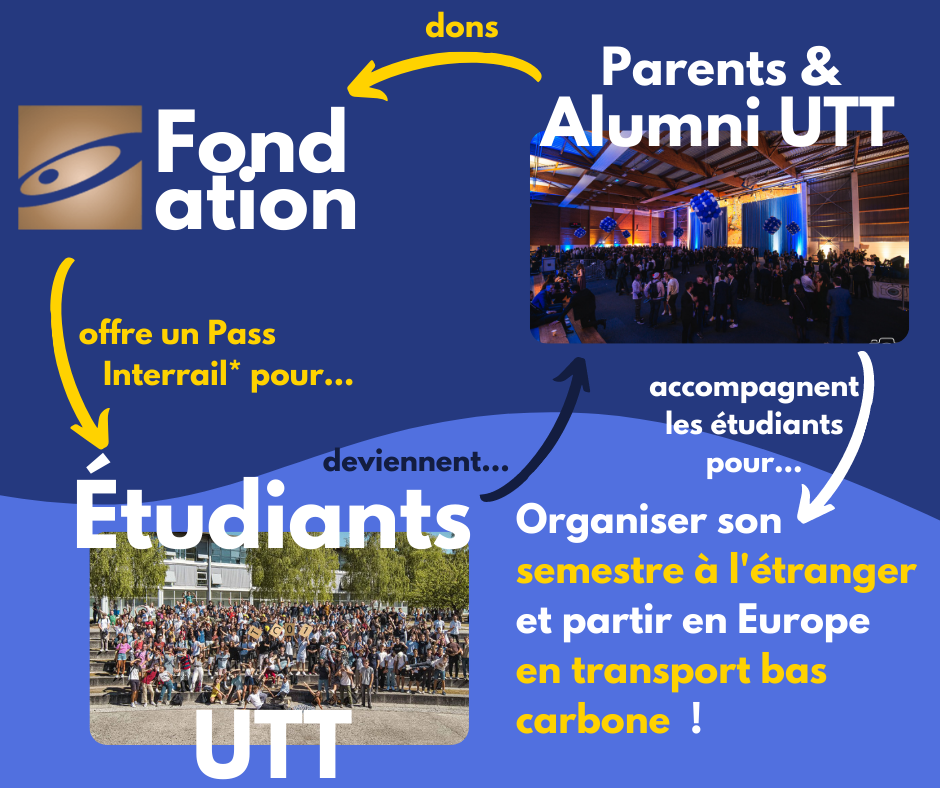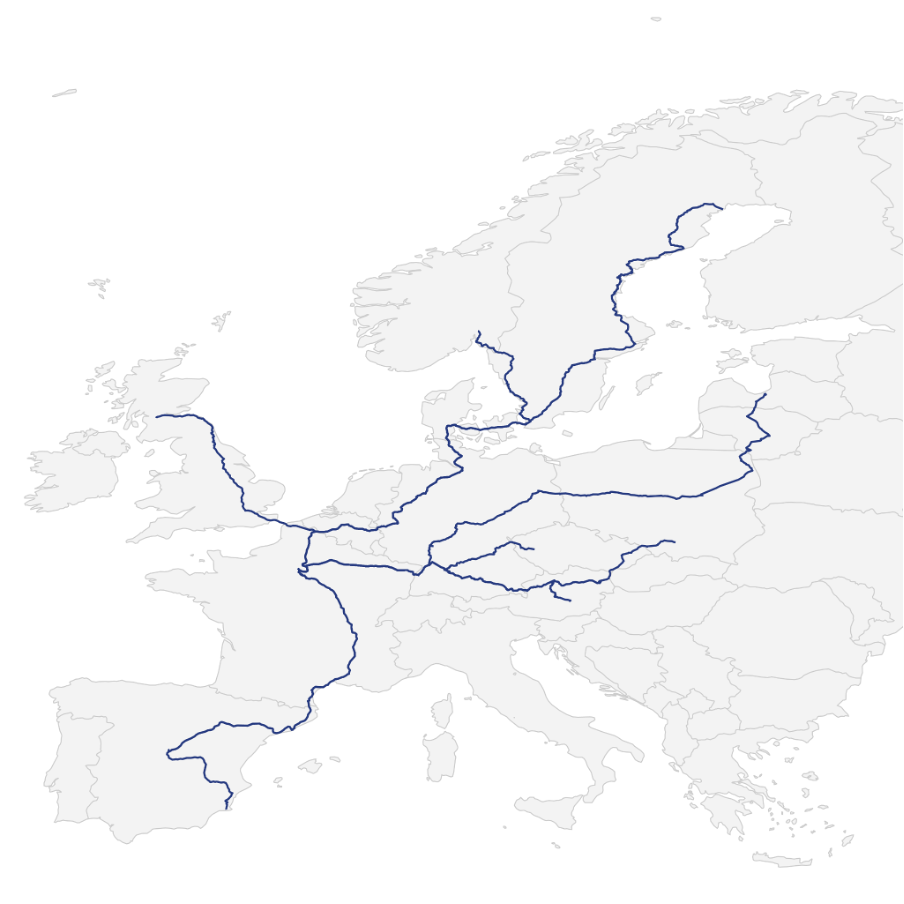Pass Mobility +
UTT Alumni supports student mobility
A program for responsible travel
Some travelers are reluctant to combine a commitment to the environment with a trip abroad. That's why UTT Alumni, in partnership with UTT's Bilan Carbone group (made up of staff and students), has been working since summer 2022 to reduce the carbon footprint of UTT students' Erasmus semesters.
Why get involved in soft mobility?
- Reducing the carbon footprint: A plane journey has a major impact on the carbon footprint. The alternatives (train, ferry, bus) are often longer but emit much less CO₂.
- Financial accessibility: Sustainable modes of transport are sometimes more expensive or more complicated to set up. Pass Mobilité Plus aims to remove these disincentives.
- Personal enrichment: Traveling more slowly and progressively allows you to discover several cities and cultures, gain autonomy and learn to adapt to the unexpected.

The Interrail Pass, at the heart of the system
In partnership with the UTT Foundation, and with the support of the CVEC, UTT Alumni finances and awards Interrail Passes to encourage train travel to accessible European destinations.
Benefits of the Interrail Pass :
- Travel free or at a reduced fare on European trains for a given period.
- Only seat reservations (on high-speed trains in particular) remain the responsibility of the student.
If the journey is more relevant without an Interrail Pass, the use of standard tickets is preferred, so that as many people as possible can benefit from the Pass Mobilité + program.

Comprehensive support
Beyond financing, UTT Alumni offers:
- Practical help to prepare your trip step by step (formalities, travel advice, tips).
- Discussion forums, meetings and feedback for students and alumni to share advice and experiences.
How does it work?
- Applying for an international semester
- When submitting your application, please indicate whether you wish to apply for the Interrail Pass (provided your destination is eligible).
- UTT International Relations collect these applications and forward them anonymously to UTT Alumni.
- Award committee
- UTT Alumni, students and staff meet to assess the ecological and financial relevance of each destination.
- Criteria include:
- The CO₂ reduction compared to a plane journey.
- The overall cost saved thanks to the Interrail Pass.
- The duration and feasibility of the journey.
- The distribution of Passes between different destinations.
- Pass notification and purchase
- Selected students are contacted by International Relations.
- They confirm their interest with UTT Alumni, who purchase the Passes using funds raised by the UTT Foundation.
- A virtuous circle
- Once they have graduated, those who wish to take part can help finance new Passes for subsequent classes (by making tax-deductible donations to the UTT Foundation).
Half-yearly results
UTT Alumni regularly communicates on:
- CO₂ savings achieved by students thanks to this scheme.
- Feedback from travelers (stories, best practices, advice), to inspire the UTT community, including alumni, staff and partner companies.
Some examples of routes taken

Program limits
- Eligible destinations: Only journeys that can actually be made by train (or other low-carbon modes) will be funded. A trip involving, for example, a highly polluting long-distance ferry will not be given priority.
- Number of journeys: This depends on the number of donations received. Allocation is therefore based on budget and proposed journeys.
Figures since 2023*
- Over 25 tonnes of CO2eq avoided since 2023**.
- 13,000€ earmarked for student travel, thanks to the UTT Foundation and support from the CVEC.
- Over 222,000 km travelled by train
- Over 70 journeys financed
*As of summer 2025
**Comparisons of train/plane or train/car journeys according to planned departures using the lowtrip tool. Their methodology is available here.
Frequently asked questions (FAQ)
1. Are trains free with the Interrail Pass?
The Interrail Pass entitles you to a free or heavily discounted ticket on many European trains. Only reservations (compulsory on high-speed trains) are charged, usually from €15 to €30, depending on the company and the route.
2. How are travel days counted?
A travel day is valid from midnight to 11:59pm. With the 4 days in 1 month package, you can choose 4 separate days to travel, spread over a period of 30 days from the first day of travel.
3. Do night trains count for two days?
No. For a night train that departs before midnight and arrives after midnight, only the day of departure is counted.
Participate in the
- Make a donation to the Fondation UTT: (target "Mobilité internationale" and mention "Pass Interrail").
- Spread the word: talk to friends and family, companies and local authorities likely to support this initiative or adapt it to their organization.
- Join the UTT Alumni team: this initiative exists thanks to the work of the association's volunteers. Come and help us develop it!
- If you have any questions or suggestions about destinations, please contact us!
Pass Mobilité Plus, a step towards more sustainable international mobility
By choosing soft mobility, you are taking part in a collective project designed to harmonize students' international ambitions with the need to preserve the planet. Join us and help make every trip abroad an adventure rich in discovery and responsible commitment.


